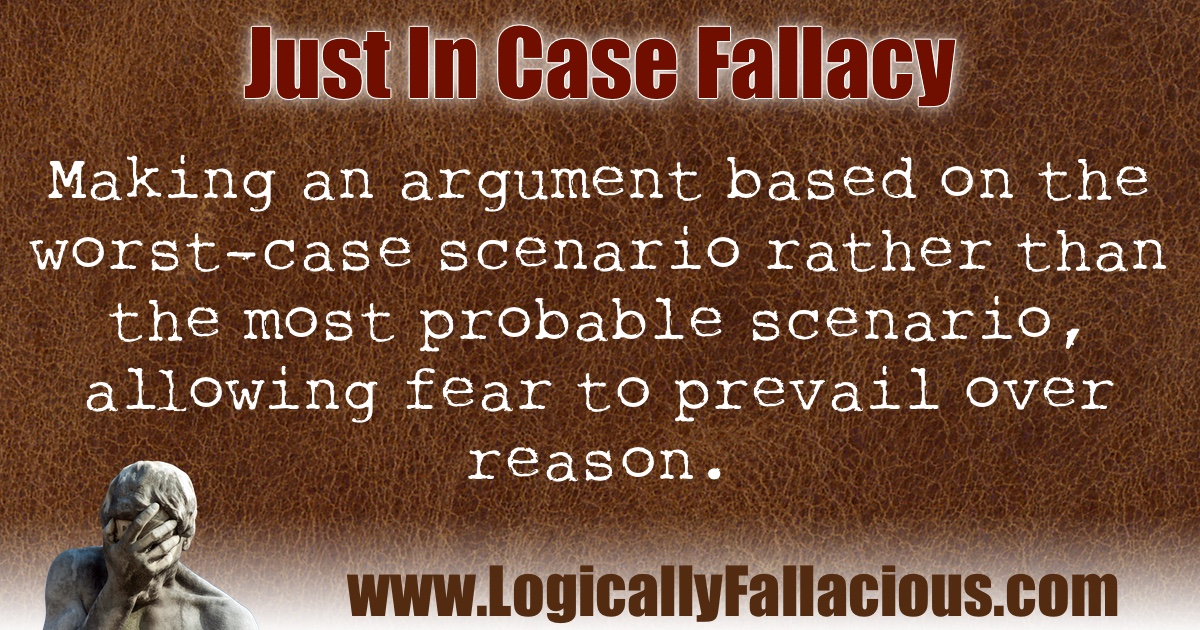(also known as: worst case scenario fallacy)
Description: Making an argument based on the worst-case scenario rather than the most probable scenario, allowing fear to prevail over reason.
Logical Form:
It would be a good idea to accept claim X since it is possible for event Y.
Example #1:
Maury, you should really wear a helmet when playing chess. You can easily get excited, fall off your chair, and crack your head open.
Explanation: Every decision you make has both costs and benefits. Fallacious arguments, like the one above, will attempt to get you to make a decision out of fear rather than reason, thus increasing the perceived cost of choosing not to wear a helmet. Of course, the cost of wearing a helmet while playing chess is peer ridicule of historic proportions.
Example #2:
If Hell is real, then you would be wise to accept Christianity as true.
Explanation: The attempt is to get you to make a decision out of fear rather than reason, thus increasing the perceived cost of not accepting Christianity as true. There are many Christians who reject the idea of Hell and eternal torment by a perfectly loving God. Plus, there are over a billion people who subscribe to the religion that believes worshiping anyone besides Allah will buy you a one-way ticket into the fiery pits of Hell. Through reason, you can evaluate these choices and make a decision on reason, not on fear.
Exception: When you can come to a reasonable conclusion that preparing for the worst-case scenario is the most economically sound course of action (as in cost-benefit—not necessarily financial), then the fallacy is not committed.
Tip: Buying insurance or a warranty is not always a good idea—mitigating risk comes with costs, that are often not obvious.

This a logical fallacy frequently used on the Internet. No academic sources could be found.